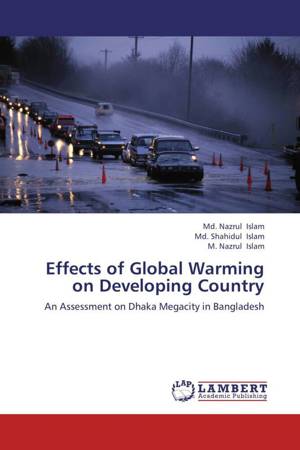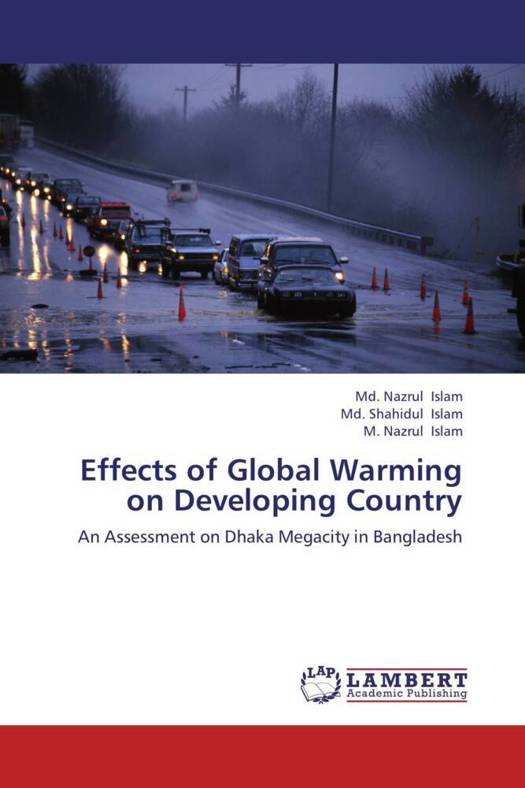
Bedankt voor het vertrouwen het afgelopen jaar! Om jou te bedanken bieden we GRATIS verzending (in België) aan op alles gedurende de hele maand januari.
- Afhalen na 1 uur in een winkel met voorraad
- In januari gratis thuislevering in België
- Ruim aanbod met 7 miljoen producten
Bedankt voor het vertrouwen het afgelopen jaar! Om jou te bedanken bieden we GRATIS verzending (in België) aan op alles gedurende de hele maand januari.
- Afhalen na 1 uur in een winkel met voorraad
- In januari gratis thuislevering in België
- Ruim aanbod met 7 miljoen producten
Zoeken
Effects of Global Warming on Developing Country
An Assessment on Dhaka Megacity in Bangladesh
Md. Nazrul Islam, Md. Shahidul Islam, M. Nazrul Islam
Paperback | Engels
€ 64,45
+ 128 punten
Omschrijving
Global warming is the greatest environmental challenge facing the world today. It is broadly recognized that Bangladesh is very vulnerable to this problem. Indeed, it has internationally been argued that Bangladesh, as a country, may suffer the most severe impacts from global warming and climate change. The effect of global warming on Dhaka city is likely to severe. The green house gases emission ratio of Dhaka city is negligible comparing to worldwide ratio. But this contribution is likely to increase rapidly with the continuing growth of the city's population. At the same time, Dhaka is prone to damaging and costly flooding, both from the rivers that bound it and from rainfall that generates runoff that is beyond the capacity of the drains. Annual mean temperature and rainfall and humidity data are used to realize the global warming effect of the study area. From the data analysis it is found that temperature and rainfall are increasing day by day as well as local weather and climate is changing. Urban flooding, water logging, reducing fresh water availability, warmer and more humid weather leading to crisis food security, and health of the city dwellers.
Specificaties
Betrokkenen
- Auteur(s):
- Uitgeverij:
Inhoud
- Aantal bladzijden:
- 84
- Taal:
- Engels
Eigenschappen
- Productcode (EAN):
- 9783659388156
- Verschijningsdatum:
- 29/04/2013
- Uitvoering:
- Paperback
- Afmetingen:
- 150 mm x 220 mm
- Gewicht:
- 136 g

Alleen bij Standaard Boekhandel
+ 128 punten op je klantenkaart van Standaard Boekhandel
Beoordelingen
We publiceren alleen reviews die voldoen aan de voorwaarden voor reviews. Bekijk onze voorwaarden voor reviews.









